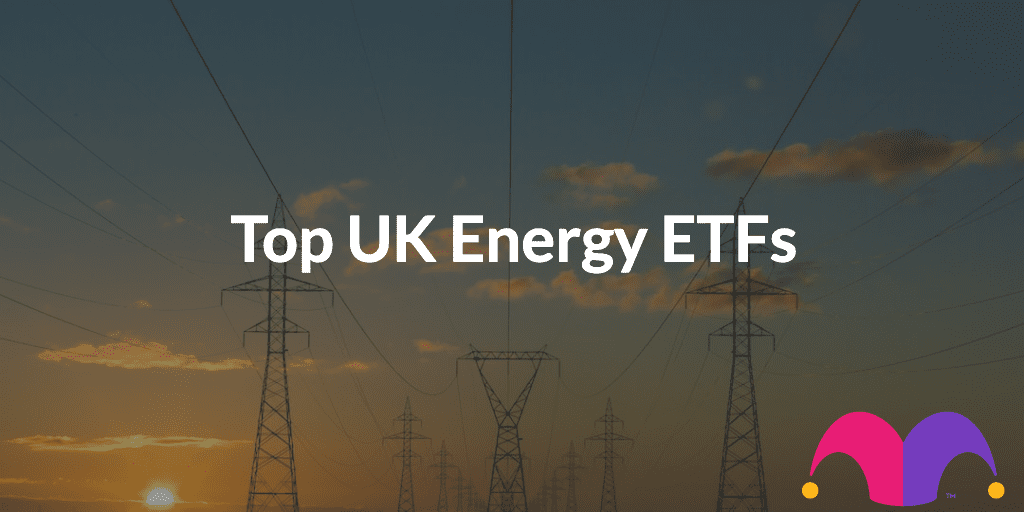The energy sector is arguably one of the most critical industries in the world. It plays a significant role in the UK and the global economy, providing electricity to businesses and households. Yet, for investors, it can be a complex industry to navigate.
Fortunately, there are a growing number of energy ETFs that help solve this problem. But what exactly are these investment vehicles? And how can an investor use them to tap into the opportunities of the energy sector?
Let’s break it down.
What is an energy ETF?
An energy exchange-traded fund (ETF) focuses exclusively on investing in financial assets and securities relating to the energy sector. They enable investors to quickly and easily gain exposure to a diverse range of stocks, bonds, commodities, and other derivatives with a single transaction.
There are numerous sub-sectors within the energy industry, including traditional oil & natural gas, as well as alternative and green energy. While some energy ETFs may focus on the sector in general, many are highly specific, only targeting certain aspects.
Today there are approximately 30 energy ETFs listed on the London Stock Exchange. And the vast majority have a unique strategy that caters to a wide range of investors seeking growth while keeping risk in check.
Top energy ETFs in the UK
The London Stock Exchange is home to various energy ETFs that invest in a broad range of assets revolving around traditional and renewable technologies. Here are the top energy ETFs by market cap as of April 2025.
| Name | Fund Size | Inception Date | Description |
| iShares Global Clean Energy (LSE:INRG) | £1.5bn | 9 Jul 2007 | A renewable energy fund that invests in wind, hydro, and solar energy companies worldwide1 |
| WisdomTree Energy Transition Metals (LSE:NRGT) | £219.8m | 03 Mar 2022 | A diversified ETF that invests in commodities critical to the transition towards renewable energy technologies4 |
| Global X CleanTech (LSE:CTEG) | £1.6m | 16 Nov 2021 | A global ETF investing in companies that benefit from solutions improving the efficiency of renewable energy technology5 |
iShares Global Clean Energy
The iShares Global Clean Energy ETF contains a diversified portfolio of 100 different shares primarily in the mid-cap segment of the global stock market.
The fund’s objective is to provide investors with exposure to companies that generate clean energy through renewable technologies, including solar, wind, and hydro. Additionally, the fund uses various ESG screens to exclude companies that derive the majority of their revenue from deals relating to weaponry, military contracting, oil & gas exploration, tobacco, or thermal coal.
WisdomTree Energy Transition Metals
The WisdomTree Energy Transition Metals ETF contains a diversified commodities portfolio focused on metals critical to the global renewable energy transition. This includes electric vehicles, transmission, charging, energy storage, solar, and wind energy, as well as hydrogen production.
It grants investors exposure to various futures contracts and tracks the WisdomTree Energy Transition Metals Commodity Index.
Global X CleanTech
The Global X CleanTech ETF contains a diversified portfolio of 35 companies operating within the information technology, industrials, materials, and consumer discretionary sectors. Each business is positioned to benefit from the increased adoption of technologies that boost renewable efficiency and reduce natural resource consumption.
Approximately 38% of the stock portfolio consists of companies listed in the US, with the rest being diversified globally. Its largest position is in Enphase Energy, representing 6.9% of its holdings.
How to invest in energy ETFs
Industry-based ETFs can be bought and sold like regular stocks using a brokerage account. However, suppose an energy ETF is listed on an exchange not supported by an investment account? In that case, buying shares in the fund will not be possible without an account that offers access to that exchange.
For example, a fund listed on the New York Stock Exchange cannot be purchased by a British investor if their broker only provides access to the London Stock Exchange and vice versa.
Are energy ETFs a good buy?
Investing in energy stocks through an ETF is a convenient method for investors to instantly diversify and gain exposure to the industry. Given the complex nature of the various companies within the sector, these investment vehicles serve as a beginner-friendly option to tap into new opportunities with minimal knowledge.
Having said that, ETFs have some caveats.
As previously mentioned, these funds incur management fees that can eat into overall returns.
Furthermore, they are likely unsuitable financial instruments for investors seeking to outperform the stock market in the long run. Why? Because ETFs, by design, are intended to track the performance of a particular benchmark index, industry, or commodity, not beat them.
Therefore, investors need to consider both the advantages and disadvantages of energy ETFs to determine whether they are a “good buy” for their personal portfolios.
